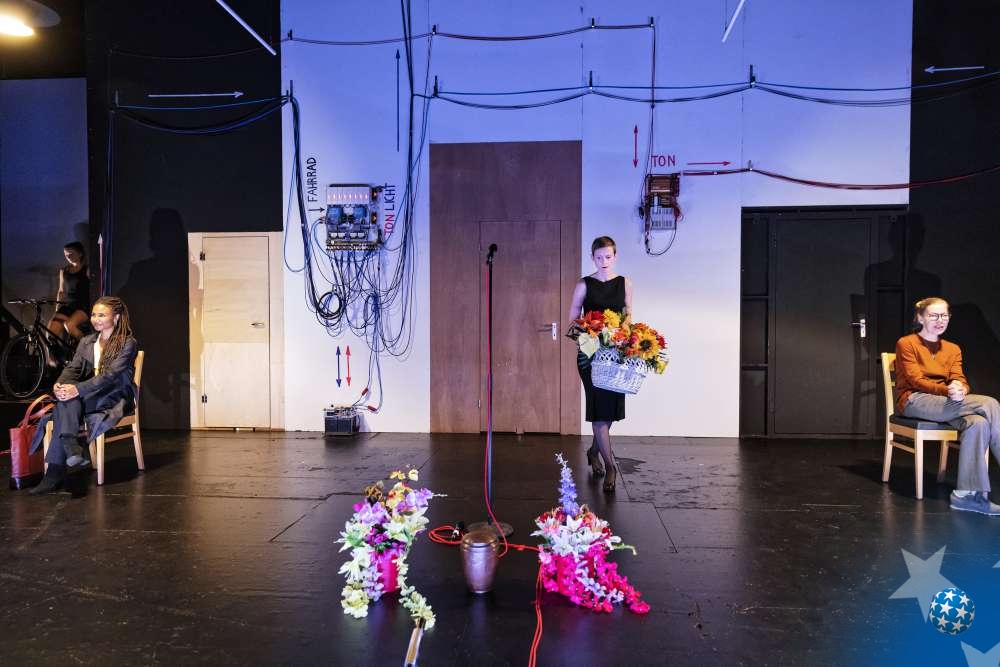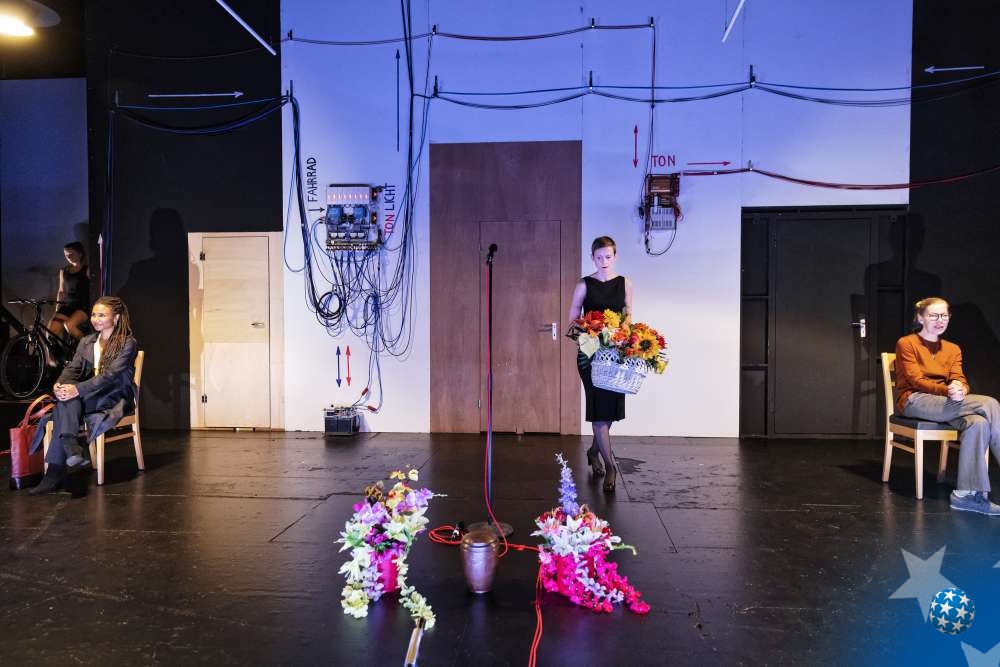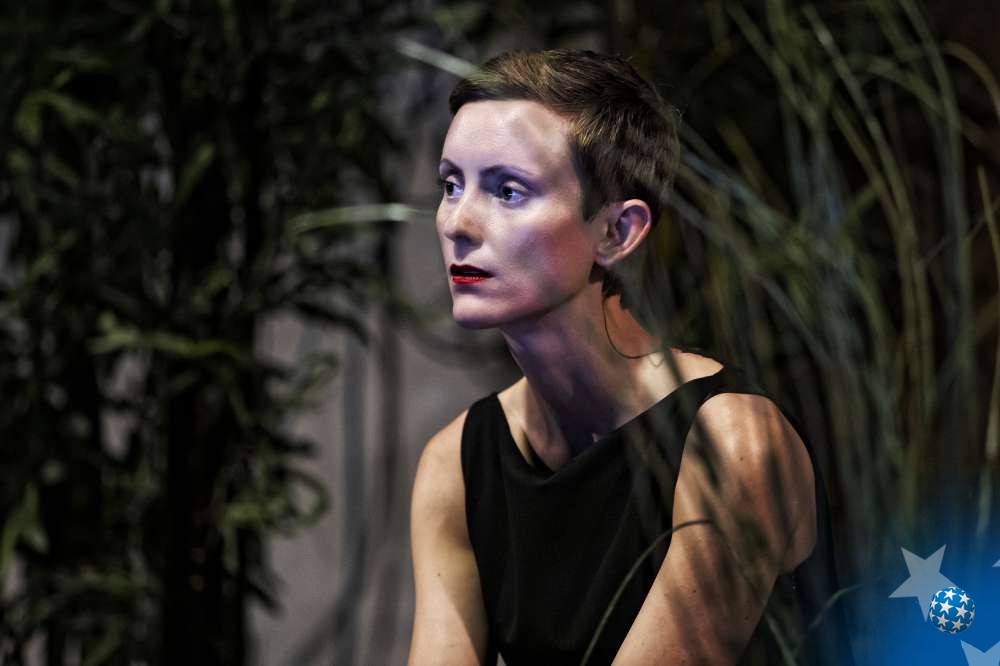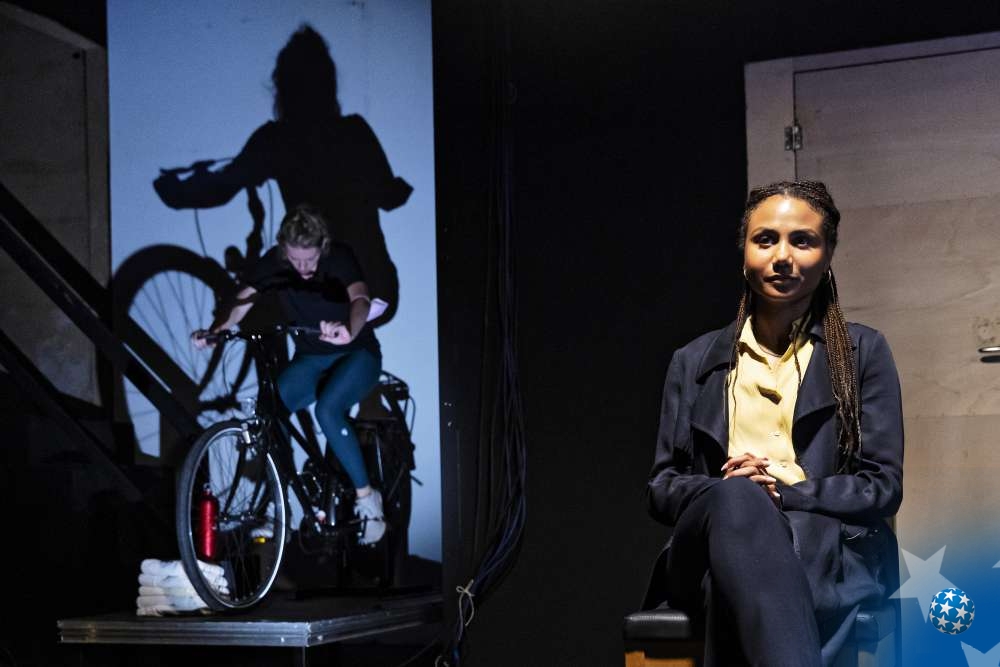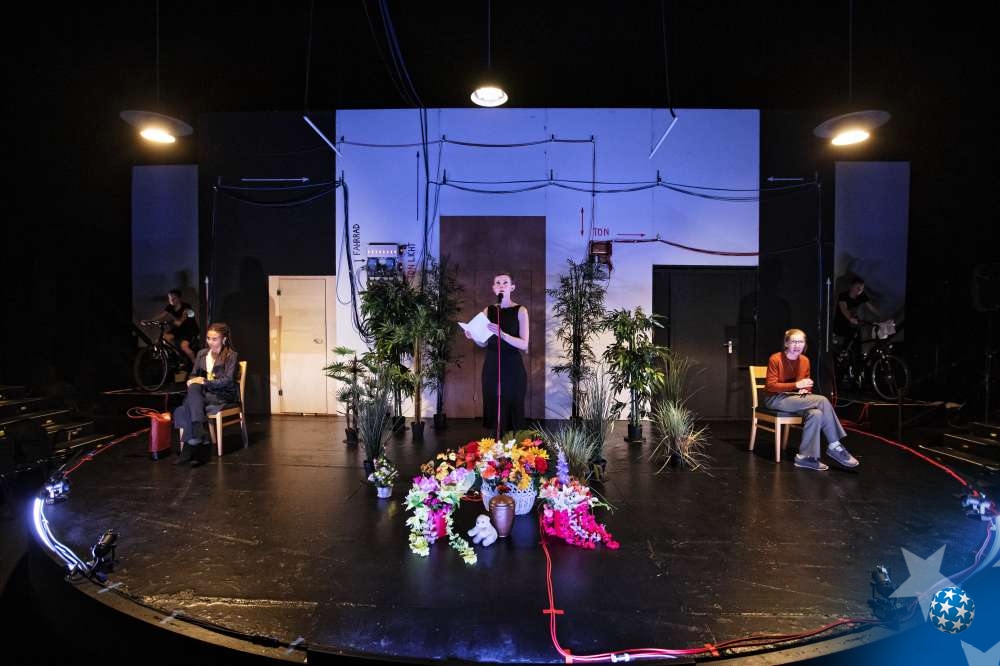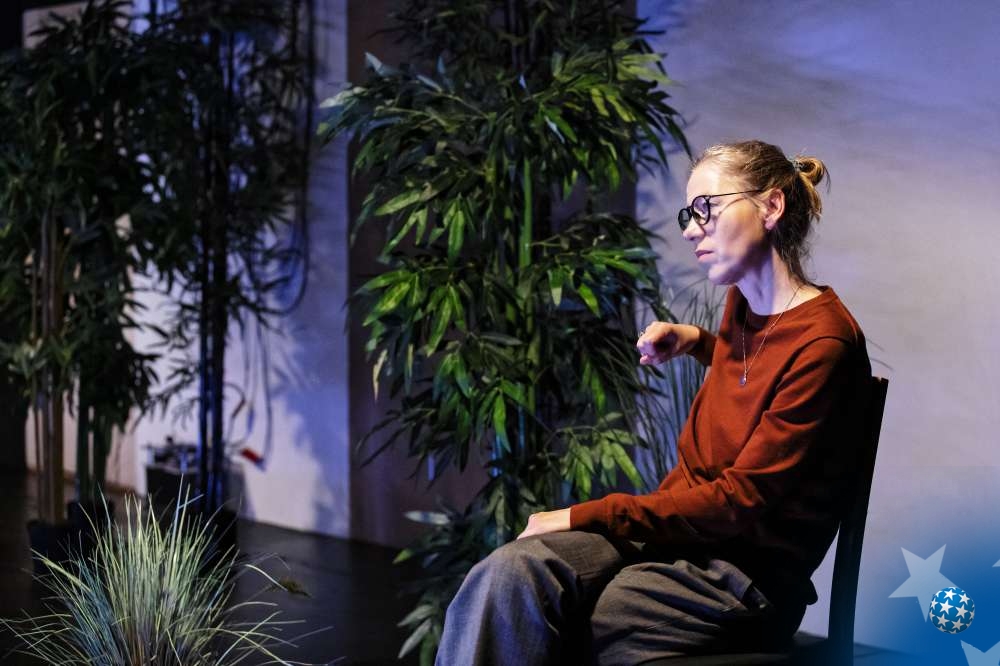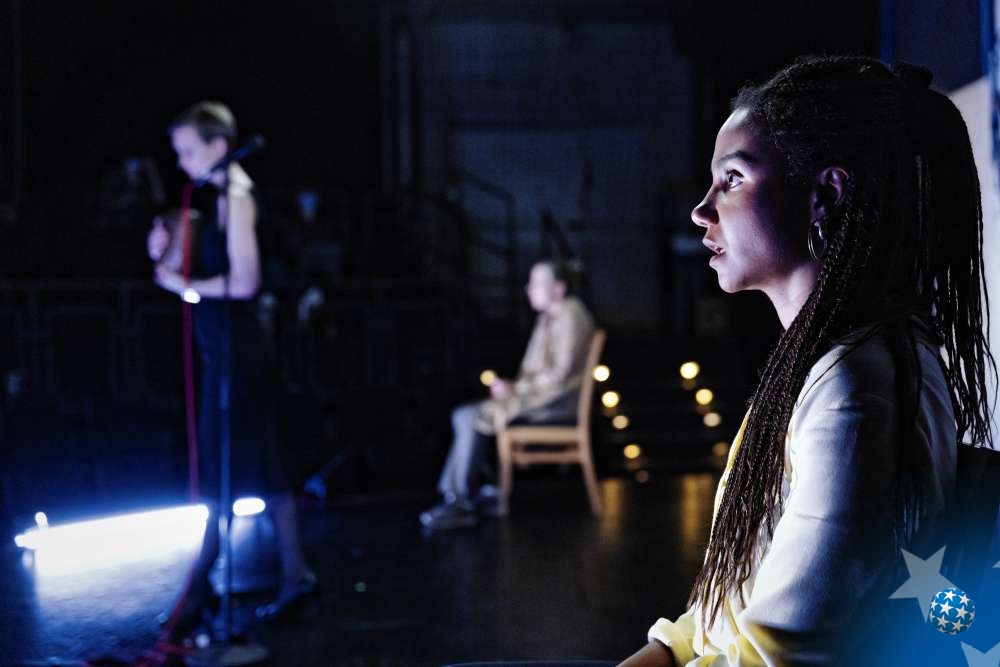Curators’ Statement
As in previous years, Bitef opens with the Day of the Prologue, which announces thematic and/or aesthetic lines of the programme while, sometimes, also linking them with the previous festival edition. Exactly that is the case this year, since the performance (Not) the End of the World, produced by the Schaubühne from Berlin, based on the text by the young English author Chris Bush and staged by the famous English director Katie Mitchell, builds on the environmental issues of the last Bitef. Besides dealing with ecology, the performance displays ecological awareness in terms of the production, introducing and recommending an entirely novel, utopian way of creating theatre, which is something Katie Mitchell has strived for in her latest works thus making a turn from her previously clearly recognizable poetics. The costumes and the props are taken from some old productions, stage design is created from recyclable materials, and the electricity for the show is produced during the performance by pedaling two special bicycles. Also, this production directly introduces the theme of the 56th Bitef, as the main characters are two scientists of different age and status, whose relationship exposes, among other things, the professional tension and malignant power structures in today’s academic world.
About the Production
The Arctic icecaps are melting, our oceans are getting warmer, forests are burning. Something must be done, that much is clear. But how can we hope for change when we keep repeating the same mistakes? Chris Bush’s new text is about climate change. Through the perspectives of class, patriarchy and colonialism, the text explores the “hyperobject” of climate change, too vast to be comprehended entirely, yet interwoven in every aspect of our lives. It does not have a linear narrative, but fragments of a hundred possible linear narratives. In a collage-like, shattered form, the spectators are invited to search for causes and effects and construct their own narratives. Berlin, 2021: Dr. Anna Vogel is fighting for the job of her life, a post-doc position in the institute of famous climate scientist Prof. Uta Oberdorf. In countless variations of tiny details in the course of the job interview, the text explores how small changes in the course of events in the present can have major effects in the future. In the gaps of the narrative: an 80,000-year-old colony of trees, the mating of polar and grizzly bears threatened with extinction, an immortal species of jellyfish and a trillion barrels of crude oil. There is also pink snow, an adopted orangutan and a people being brought to the edge of total obliteration. There are an unimaginably large number of ways to tell this story, but some ways lead astray, others might lead to the solution.
This is the first time young British playwright Chris Bush has written a play for a Katie Mitchell production.
The Authors
KATIE MITCHEL, born in 1964 in Reading, is an award-winning British theatre and opera director. She was inhouse director at the Royal Shakespeare Company and at the Royal Court Theatre, London and has directed regularly at the National Theatre in London. Numerous productions at theatres in Germany and Austria, including Schauspiel Köln, Deutsches Schauspielhaus Hamburg, Burgtheater Wien and, since 2010, at the Schaubühne (Orlando, Fräulein Julie, among others). In 2009 she received the award of an OBE (Officer of the Order of the British Empire). Her production of Wunschkonzert by Franz Xaver Kroetz at Schauspiel Köln was invited to the Berlin Theatertreffen in 2009. In 2013, she received the Nestroy-Prize for her staging of Night Train, based on Friederike Mayröcker, at Schauspiel Köln; this production was also invited to the Berlin Theatertreffen, as well as her production Anatomy of a Suicide in 2020 (Deutsches Schauspielhaus Hamburg).
CHRIS BUSH (*1986, Sheffield) is an award-winning British playwright, poet and theatre-maker. She has been artist-in-residence at theatres in Sheffield, the Oxford Playhouse and the National Theatre Studio. She has won awards at the UK Theatre Awards, the National Young Playwrights' Festival, the Sunday Times Edinburgh Competition and the Brit Writers' Award.
From the Reviews
As impossible as it is to reproduce climate change in theatre, Bush succeeds impressively in at least engaging the audience in an increasingly perplexed reflection on it.
Peter Laudenbach, Sueddeutsche Zeitung
This might be the most persuasive theatrical exploration of the climate crisis I’ve seen. Both genuinely terrifying and even daring to be hopeful in the end times, it contains a richness of ideas that is rare, navigated with staggering deftness. It’s an extraordinary stage work.
Gareth Llŷr Evans, The Guardian
